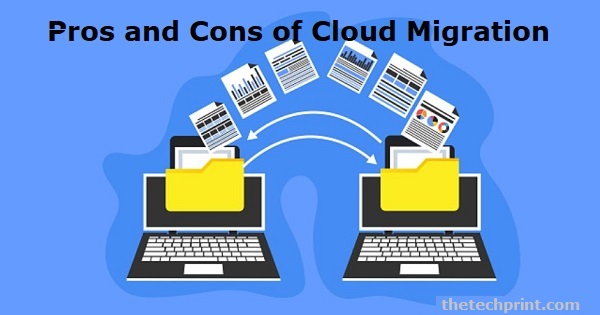Cloud migration services can help your business move its data and applications to the cloud quickly and easily. We can help you choose the right cloud platform for your business, migrate your data and applications, and optimize your infrastructure for the cloud. You'll need a public or private cloud migration company that can thoroughly examine your current system. These companies also have a comprehensive plan for moving, determining the right environment that best suits your company's needs, and then the actual cloud migration itself. When it comes to moving your entire business data elsewhere, you need to consider the Pros and Cons of Cloud Migration.
A few different things need to happen for successful cloud migration:
1. You need to choose the right cloud platform for your business. This is important because it will determine how your data and applications are stored and accessed in the cloud.
2. Once you have chosen a platform, you must migrate your data and applications to the new environment. This can be done manually or with the help of automated tools.
3. You need to optimize your infrastructure for the cloud. This includes ensuring that your network and security are up to par and that your applications can take advantage of the new platform's features.
Amazon AWS, Infosys, Capgemini, Google Cloud, Microsoft Azure, etc, all are cloud service providers that can help you migrate your data center. There are many reasons why businesses choose to migrate to the cloud. Some of the most common pros of cloud migration include the following:
One of the most significant advantages of cloud migration is that it can help businesses save money. Moving to the cloud means you no longer have to invest in on-premises hardware and software. Instead, you can pay for only the resources you use on a pay-as-you-go basis. This can help you save on upfront costs and ongoing maintenance and support expenses.
Another significant benefit of cloud migration is that it gives you more flexibility and scalability. With on-premises infrastructure, you are limited by the capacity of your physical servers. If you need to scale up, buy new hardware and install it yourself. With the cloud, you can quickly scale up or down as needed and only pay for the resources you use.
Cloud migration can also lead to improved performance. When you move to the cloud, you can take advantage of the latest and most excellent tools and technologies. This can help you improve your application's speed and reliability. In addition, the cloud can offer more storage and computing power than on-premises.
One of the obvious pros of cloud migration is that it can help increase your business's agility. With the cloud, you can roll out new applications and features faster. You can also quickly make changes to your infrastructure without having to worry about disrupting your business operations.
Cloud migration can help improve your disaster recovery strategy. You can replicate your data and applications across multiple geographical locations with the cloud. If a natural disaster impacts one location, your business can still operate from another.
While there are many advantages of cloud migration, there are also some potential challenges that businesses should be aware of. Some of the most common cons of cloud migration include the following:
One of the biggest concerns businesses have with cloud migration is security. When you move to the cloud, you entrust your data and applications to a third-party provider. While most providers have robust security measures, there is always the risk of a data breach.
Business interruptions are considered high-level cons of cloud migration. When you migrate to the cloud, you may need to reconfigure your applications and retrain your staff. This can lead to disruptions in your business operations and decrease your productivity.
One final concern with cloud migration is that it can create a dependence on the internet. If your connection goes down, so does your access to the cloud. This can be a significant problem for businesses that rely on the cloud for mission-critical operations.
Conclusion
Cloud migration is a big decision for any business. Before you make a move, it's essential to weigh the pros and cons of cloud migration to see if it's right for your business. In most cases, the advantages of cloud migration outweigh the disadvantages. But, it's still important to be aware of any migration project's potential risks and challenges.

The main benefits of cloud migration are increased flexibility and scalability, improved performance, increased agility, and better disaster recovery.
The potential disadvantages of cloud migration include security concerns, interruptions to business operations, dependence on the internet, and costs.
It depends. You should weigh the pros and cons of cloud migration to see if it's right for your business. In most cases, the advantages of cloud migration outweigh the disadvantages. But, it's still important to be aware of any migration project's potential risks and challenges.
Some things to consider before migrating to the cloud include your business's needs, objectives, and budget. You should also assess the risks and challenges involved in any cloud migration project.